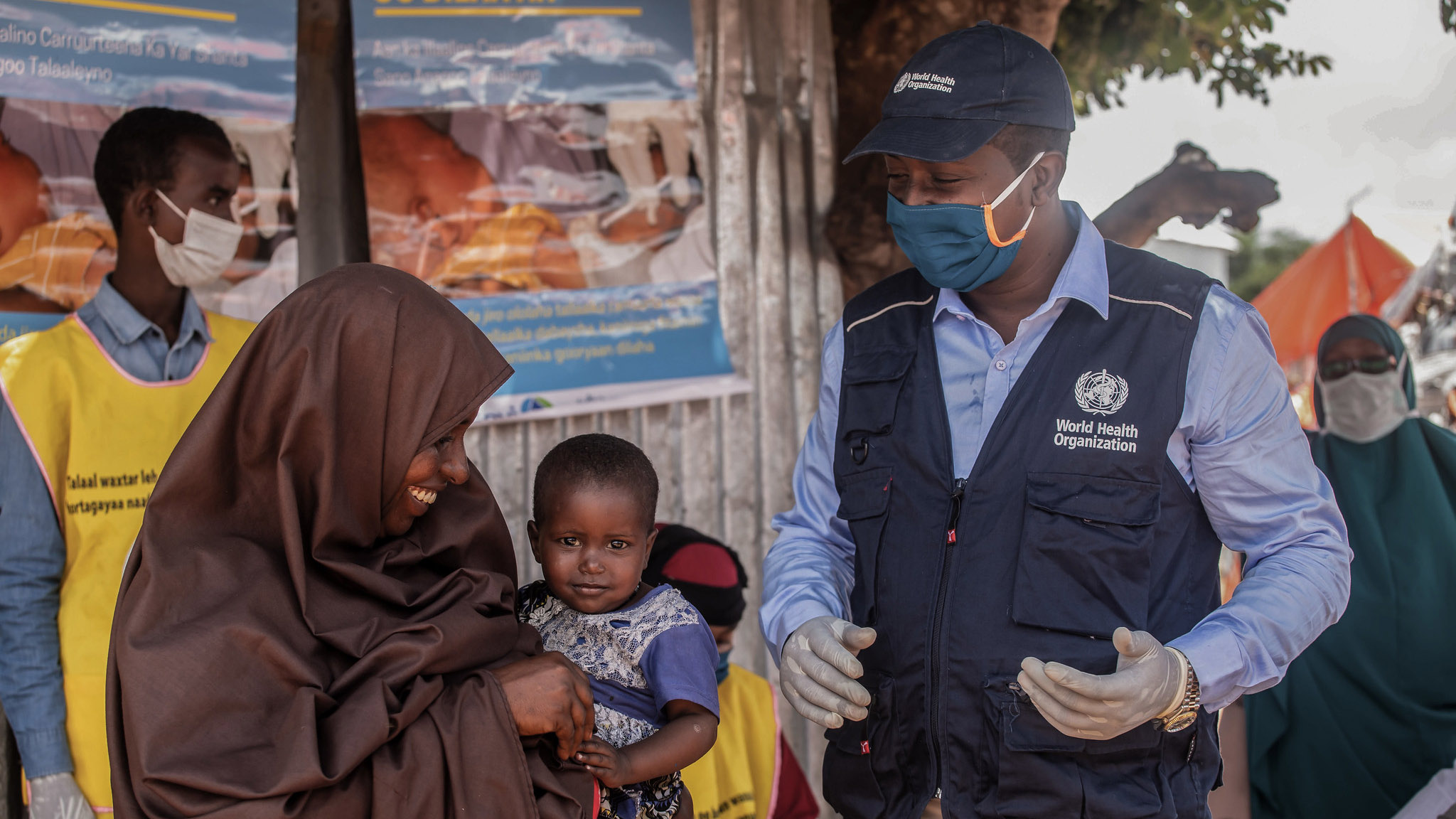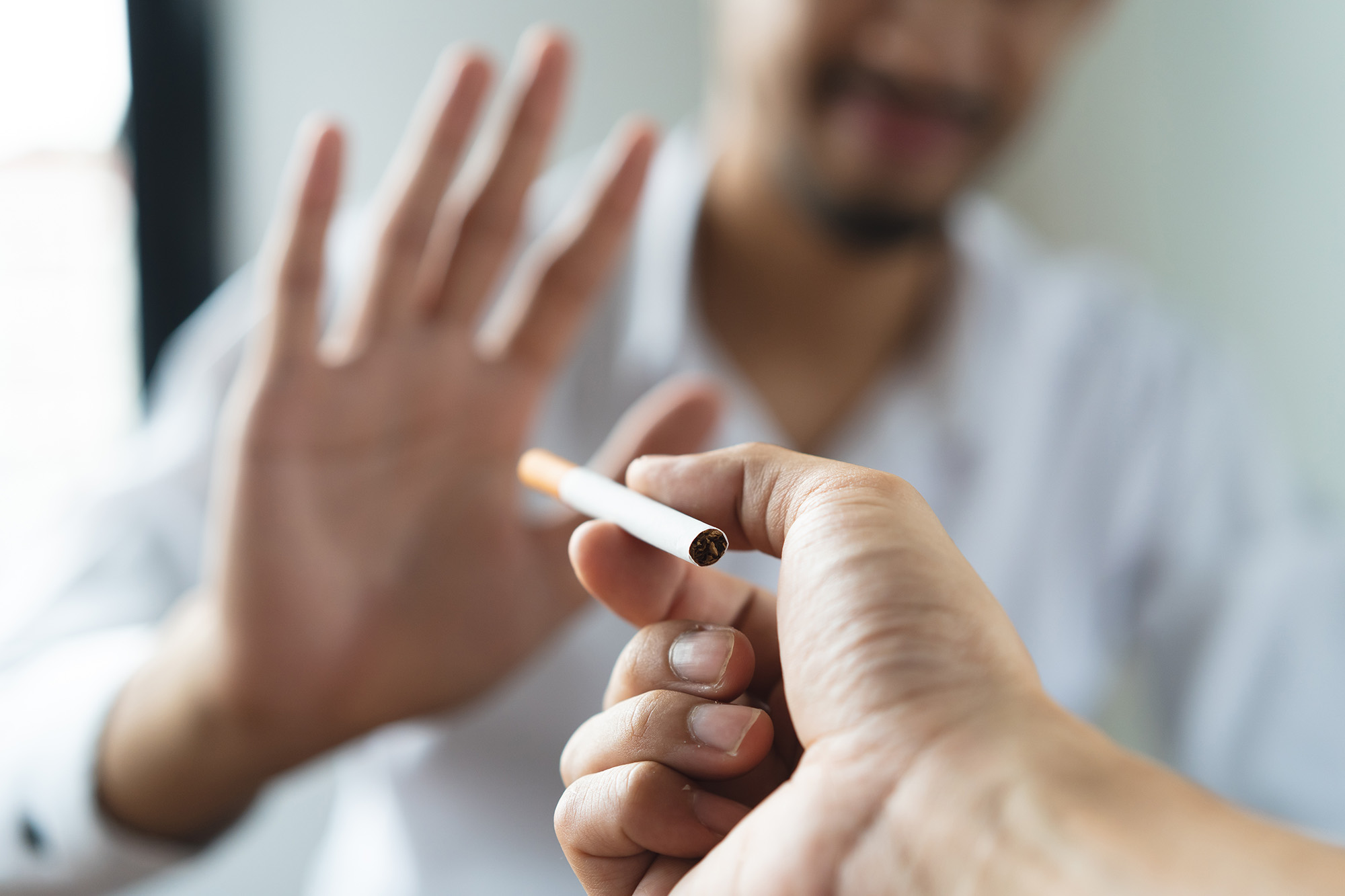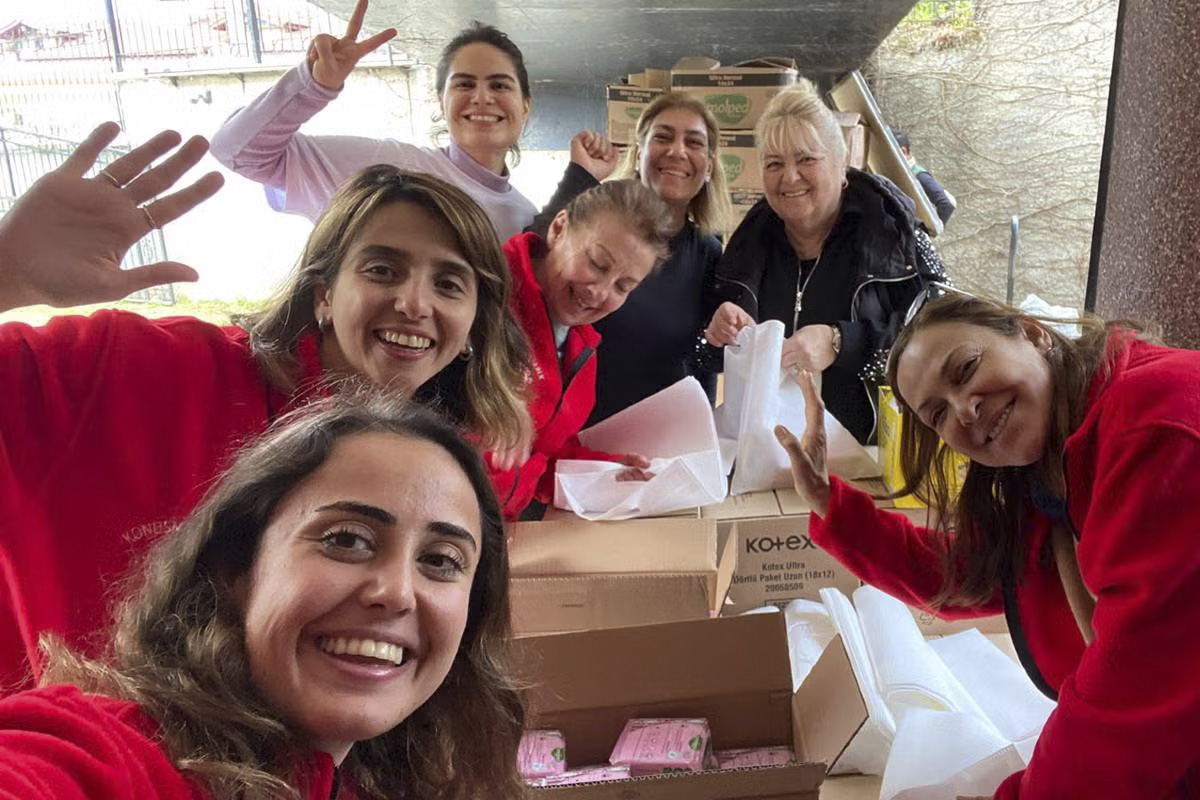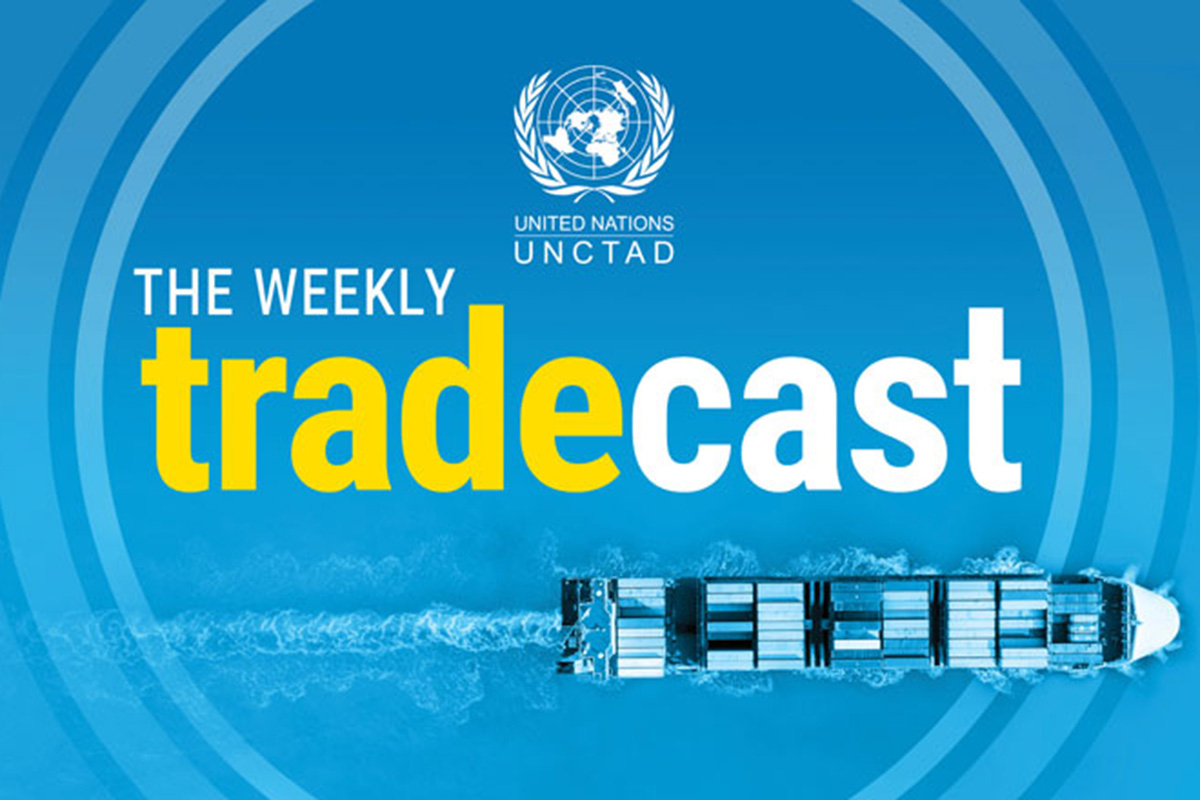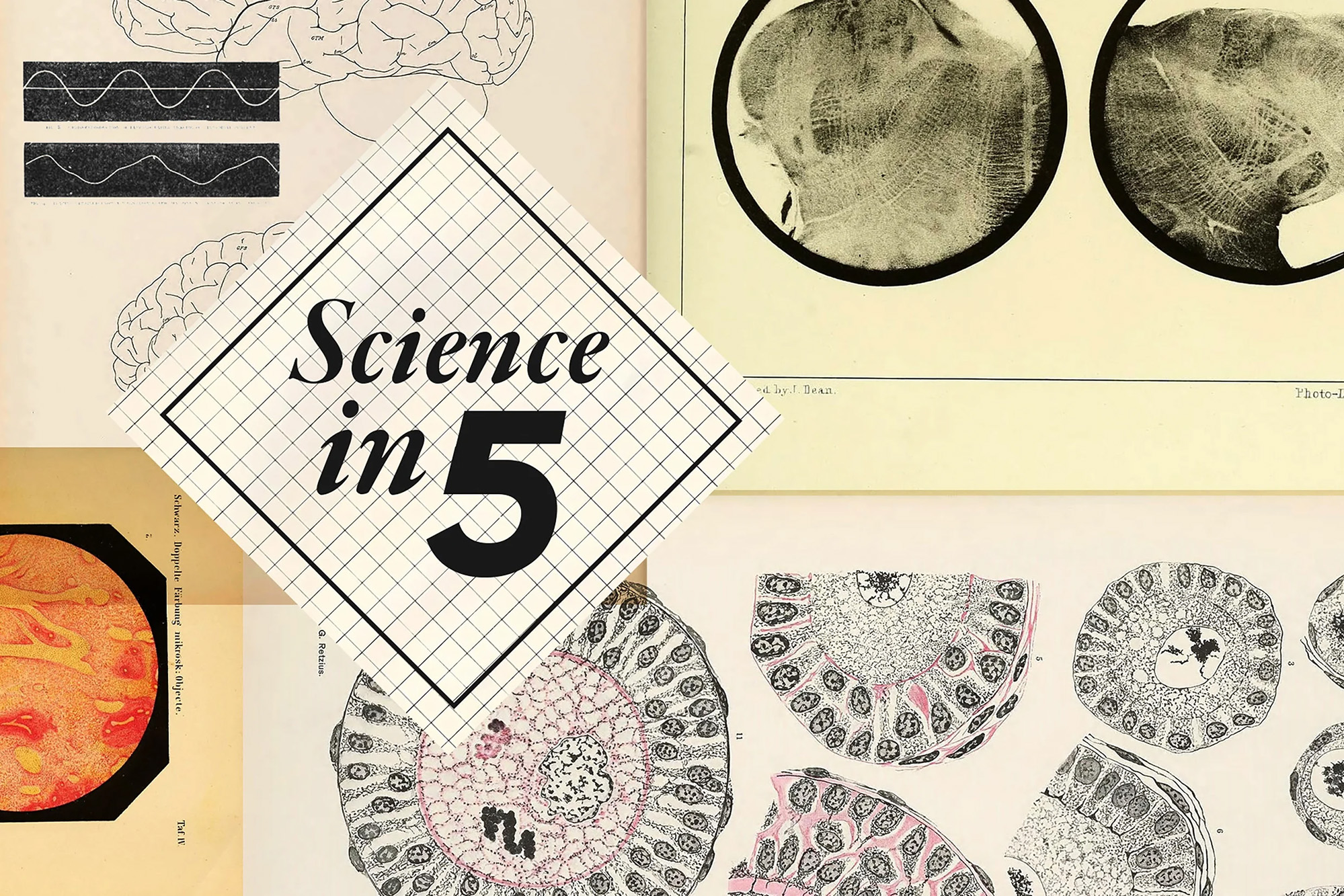Find out more in
Health
Global Issues
Accurate death certificates and coding are essential for quality mortality data and effective public health strategies.
Every day, tobacco and nicotine industries use carefully engineered products and deceptive tactics to hook a new generation of users and keep existing ones. These products are highly addictive and designed to sustain use, trapping users in a cycle of dependence. Stricter regulations are needed to reduce the appeal of these products and protect current and future generations from their harmful effects. On World No Tobacco Day (31 May), don’t let the tobacco and nicotine industries trick people with their playbook. Let’s stand together and make it crystal clear: No more tricks, no more traps.
This year's Menstrual Hygiene Day, 28 May, urges collective action to ensure that menstruation does not limit access to education, health, or opportunity. Marked since 2014, Menstrual Hygiene Day, is about the persistent inequalities surrounding menstrual health and hygiene. The Day raises awareness that investments in menstrual health can have transformative impacts on girls’ and women’s lives. Menstruation hygiene support is crucial in humanitarian crises. Activists in Türkiye are fighting for menstrual justice in the aftermath of the severe earthquake there.
Member States have approved the World Health Organisation Pandemic Agreement in a World Health Assembly Committee, marking a historic step toward its formal adoption in the Assembly's plenary session.
Tea is the world’s most consumed drink, after water. It is believed to have originated in northeast India, north Myanmar and southwest China, with evidence of its consumption in China dating back 5,000 years. This year, International Tea Day (21 May) highlights tea’s vital role in livelihoods, sustainability, and well-being. It is also an opportunity to celebrate the cultural heritage, health benefits and economic importance of tea, while working to make its production sustainable “from field to cup” ensuring its benefits for people, cultures and the environment continue for generations.
Paulo Trindade, an indigenous nurse vaccinates indigenous people in remote villages in Brazil. Thanks to his work and that of health teams across the region, with PAHO's support, millions have access to vaccines and quality healthcare.
Sport has the power to promote peace, development, health and gender equality, as well as reducing poverty. As the world’s most popular sport, with four billion fans, football has the power to bring people together, strengthen communities, and bridge differences. It also has unparalleled potential to support the 2030 Agenda for Sustainable Development. On this World Football Day (25 May), let us celebrate the universal spirit of football and harness its influence to promote health, equality, mutual understanding, and global solidarity.
Are vaccines safe? What’s actually in them? In this two-part episode of the World Health Organization podcast Science in 5, Dr. Kate O’Brien breaks down how vaccines are tested, approved, and monitored even after they reach the public. She also explains what happens if a safety concern is flagged.
Over the last 50 years, essential vaccines have saved at least 154 million lives. That’s 6 lives a minute, every day, for five decades. Under the banner, ‘Immunization for All is Humanly Possible’, World Immunization Week 2025 aims to ensure even more children, adolescents, adults – and their communities – are protected against vaccine-preventable diseases. Vaccines are proof that less disease, more life is possible when we put our minds to it. It’s time to show the world that immunization for all is humanly possible.
What does a mother need to know to ensure that she has a safe pregnancy and delivery? What are some warning signs to watch for? And what are a woman’s rights while going through a pregnancy and delivery? Join maternal health expert Dr Femi Oladapo in a new episode of WHO's Science in 5 podcast.
Sudan is facing a devastating civil war that has lasted two years, leading to widespread violence, displacement, and a severe healthcare crisis. Up to 80% of health facilities in the hardest-hit areas are either barely operational or completely closed. The conflict has displaced millions and resulted in horrific atrocities, including systematic rape. With an estimated 91,000 women expected to give birth in the next three months, many lack safe access to healthcare. Over half of Sudan’s population, approximately 30.4 million people, will need assistance in 2025 due to ongoing attacks on facilities and significant funding shortages. The United Nations sexual and reproductive health agency (UNFPA) is working to support the few operational health facilities, providing essential services to women and girls amidst these challenging conditions.
Antibiotics save lives. But when the supplies run low or bacteria become resistant, the risks grow — especially in developing countries. On this episode of UNCTAD’s The Weekly Tradecast, economist Bruno Casella explores the challenges of securing essential antibiotics, the impact of limited local production, and how better investment and coordination can strengthen supply chains.
Severe resource shortages are threatening the global response to end tuberculosis. Is the world on the brink of a global TB crisis? A quarter of the world’s population could be infected with TB and not even know it. Is there a cure? What is the treatment? How do we diagnose TB? Listen to Dr Tereza Kasaeva in a new episode of the World Health Organization’s Science in 5 podcast.
Close to 300,000 women lose their life due to pregnancy or childbirth each year, while over 2 million babies die in their first month of life and around 2 million more are stillborn. That’s roughly 1 preventable death every 7 seconds. World Health Day kicks off a year-long campaign on maternal and newborn health. The campaign, "Healthy beginnings, hopeful futures", urges governments and the health community to ramp up efforts to end preventable maternal and newborn deaths and to prioritize women’s longer-term health and well-being.

